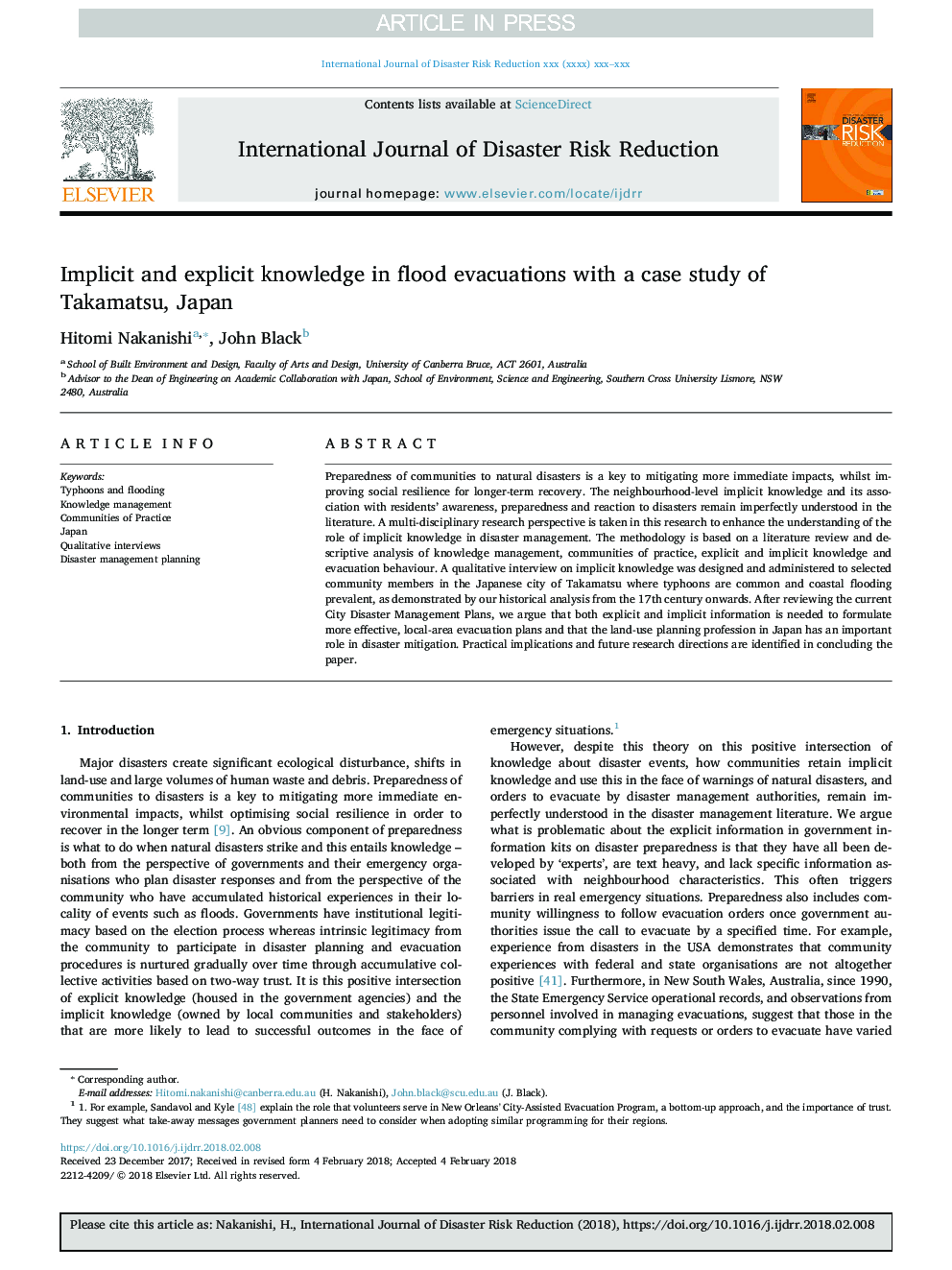| Article ID | Journal | Published Year | Pages | File Type |
|---|---|---|---|---|
| 7471839 | International Journal of Disaster Risk Reduction | 2018 | 10 Pages |
Abstract
Preparedness of communities to natural disasters is a key to mitigating more immediate impacts, whilst improving social resilience for longer-term recovery. The neighbourhood-level implicit knowledge and its association with residents' awareness, preparedness and reaction to disasters remain imperfectly understood in the literature. A multi-disciplinary research perspective is taken in this research to enhance the understanding of the role of implicit knowledge in disaster management. The methodology is based on a literature review and descriptive analysis of knowledge management, communities of practice, explicit and implicit knowledge and evacuation behaviour. A qualitative interview on implicit knowledge was designed and administered to selected community members in the Japanese city of Takamatsu where typhoons are common and coastal flooding prevalent, as demonstrated by our historical analysis from the 17th century onwards. After reviewing the current City Disaster Management Plans, we argue that both explicit and implicit information is needed to formulate more effective, local-area evacuation plans and that the land-use planning profession in Japan has an important role in disaster mitigation. Practical implications and future research directions are identified in concluding the paper.
Related Topics
Physical Sciences and Engineering
Earth and Planetary Sciences
Geophysics
Authors
Hitomi Nakanishi, John Black,
